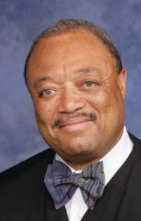Black at the Big Green : "A Real Commitment to Being Black Obviously"
For the Dartmouth Black Lives Oral History Project, I interviewed Bill McCurine '69, a retired magistrate judge. McCurine was a tutor for Dartmouth’s ABC (A Better Chance) program and one of the founders of the Afro-American Society in the late 1960s. When asked about the Civil Rights Movement and Black protests at Dartmouth, McCurine states, “it [the movement] was a real commitment to being Black, obviously.” This quote was the inspiration for the exhibit title. The purpose of this exhibit is to reflect on this commitment to the African-American sense of personhood and urgency for cultural relevance. This exhibit includes five main themes that were recurrent in my interview with McCurine and relevant to the Black experience at Dartmouth: Recruitment, Art and Music, founding of the Afro-Am, being unapologetically Black in the face of anti-Blackness, and social upheaval. McCurine’s narrative helped me to consider the influence that art and artistic discourse had on the movement. It is important to showcase that football was not the only recruitment tactic that the institution employed to get more African American students. The ABC program and the Tucker Foundation project are great examples of this. Additionally, this exhibit includes sources that show the college’s inadequate integration of and support for African American students. Finally, McCurine brought my attention to the cross-cultural aspects of protests during the mid-60s and early 70s. Black students were protesting Vietnam and white students protesting for Civil Rights, meaning that activism was not as segregated as the campus culture. This digital project was inspired by McCurine’s lived experience, substantiated by historical documents, and reflective of the Black experience at the Big Green.
Exhibitor's Statement
The Dartmouth Black Lives Project has given me the amazing opportunity to create a new record of Dartmouth's past and center the voices of Black students in the process. The three-month preparation for this exhibit has been a difficult, yet educational and deeply rewarding process. This project has forced me to rethink oral history from a collection of a historical events to a tool that equips communities to retell their history. The voices of African American students have often been ignored in the institution's 250 year history but this project places their experiences at the forefront. I couldn't have imagined how much work and care is put into oral history projects. From the preliminary research on the subject to the organization of questions to the actual interview to the transcription and the editing of the transcription. Every single step requires an immense amount of patience and attentiveness. I am very thankful for my professors Julia Rabig and Bryan Winston for equipping me with the research skills and critical framework to conduct the interviews. I would also like to thank Bill McCurine for taking the time to be honest and introspective during our interview. The interview, at its core, is a conversation. And I could not have asked for a better conversational partner. I would also like to recognize the hard work of every student in the Dartmouth Black Lives course for fostering a collaborative learning enviornment. Each of our interviews and exhibits contribute to a larger archives that documents the lived experiences of past Black Dartmouth students. If we do not tell these stories, who will?


